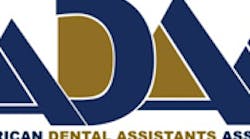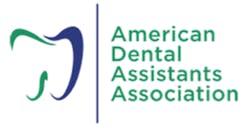Dental assistants are faced with choices in the course of performing their jobs every day. Will that impression require a maxillary or mandibular tray? Will the doctor need the 150 or the 151 forceps? Does the situation call for 21 mm reamers or 31 mm reamers? Many of these choices are cut-and-dried and based upon a definitive need in providing a dental service to a patient. However, whether we realize it or not, many decisions that confront dental assistants are truly ethical dilemmas. The choices we make in response to these dilemmas serve to determine the moral character of each dental assistant.
Scenario 1: You’ve been running behind schedule all day and have not had time to clean and sterilize instruments from the morning patients. You’ve discovered that there are no more sterile cord-packing instruments, and your last patient of the day has waited 10 minutes past her appointment time for a crown prep procedure. CHOICES: You can quickly process the instruments you need and sterilize them in an “immediate use” cycle in the autoclave, delaying the procedure at least another 10 minutes, or you can thoroughly wipe down the instruments with a one-minute intermediate-level disinfectant and incorporate them in your tray set-up.
Scenario 2: After the scaling and root planning procedure, the dentist has legally delegated to you, an expanded functions dental assistant, the tasks of polishing the clinical crowns of teeth and applying fluoride varnish before dismissing the patient. During the coronal polish procedure you detected a large area of calculus extending subgingivally on the mesiolingual of tooth No. 26. CHOICES: You can pick up a scaler and remove the calculus, you can call the dentist away from another patient to come and remove the calculus, or you can disregard the calculus and leave it in place.
When faced with an ethical dilemma, truly the best way to solve it is to make the choice that would demonstrate your moral duty to do no harm. When considering the meaning of ethics, indeed one need only to refer to the basic tenants we were taught as children, “Always choose right versus wrong.” In the previous scenarios, what are the right things to do and what are the wrong things to do? Which of the choices would result in no harm done?
Obviously we choose to sterilize the instruments in scenario 1. That is the right thing to do. Anything less would be below the acceptable standard of care and a violation of CDC Guidelines. In scenario 2, the proper response is to call the dentist to remove the calculus. Dental assistants are generally not permitted by law to remove calculus, especially subgingival calculus. Choosing to remove it means choosing to break the law. Consequences can occur, leaving the assistant (and supervising dentist) vulnerable to litigation and even prosecution. Leaving it in place can also result in harm because periodontal inflammation would continue in that area and compromise the patient’s dental health. For both scenarios, although the right choice was made, a conflict remained – a delay occurred and the schedule was compromised. In ethical dilemmas, the true “lesser of the evils” or moral choice must be made, even though the choice might not result in an ideal situation.
Professional dental assistants have many ethical responsibilities in the practice of their profession. Competent assistants not only know the laws and rules that govern their practice, they also understand the moral implications of their actions both on the job and off. The members of the American Dental Assistants Association are committed to demonstrating professional ethics in the practice of the profession, and they strive to share in the responsibility of quality dental health care delivery to all.
ALSO BY KIMBERLY BLAND:The power of peers: Establishing professional networks
Celebrating dental assistants during upcoming Dental Assistants Recognition Week
AMERICAN DENTAL ASSISTANTS ASSOCIATION PRINCIPLES OF PROFESSIONAL ETHICS (2011)
FOREWORD: The Principles of Professional Ethics lists legal and ethical guidelines expected by patients, employers, employees and, in many areas, required by regulatory boards.
• Cause no harm;
• Uphold all federal, state, and local laws and regulations;
• Be truthful and honest in verbal, financial, and treatment endeavors;
• Recognize and report signs of abuse to proper authorities;
• Assist in informed decision-making of treatment options while respecting the rights of patients to determine the final course of treatment to be rendered;
• Do not discriminate against others;
• Support, promote and participate in access to care efforts through education, professional activities, and programs;
• Deliver optimum care utilizing professional knowledge, judgment, and skill within the law;
• Be compassionate, respectful, kind, and fair to employers, coworkers, and patients;
• Refrain from denigrating by word, print, or electronic communication his/her employer, workplace, or colleagues at all times;
• Create and maintain a safe work environment;
• Assist in conflict management when necessary to maintain harmony within the workplace;
• Strive for self improvement through continuing education;
• Strive for a healthy lifestyle that may help prevent physical or mental impairment caused by any type of illness;
• Refrain from any substance abuse;
• Never misrepresent professional credentials or education.
The American Dental Assistants Association (ADAA) has proudly been the recognized voice of dental assisting for 90 years. It remains committed to promoting quality dental health care to the public and enhancing the public image and stature of the dental assisting profession. For more information on the Association, visit www.dentalassistant.org.








